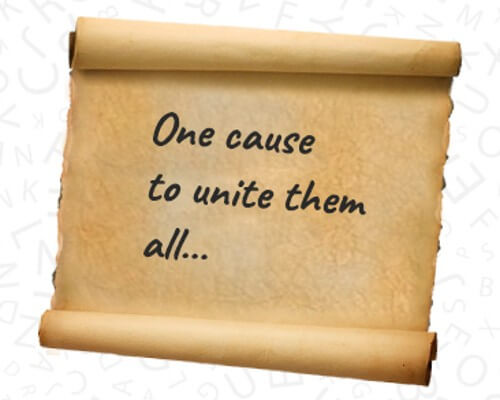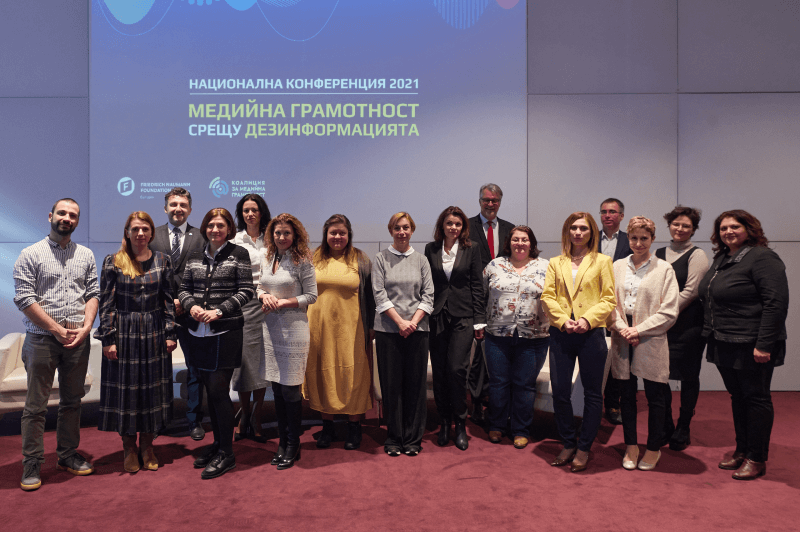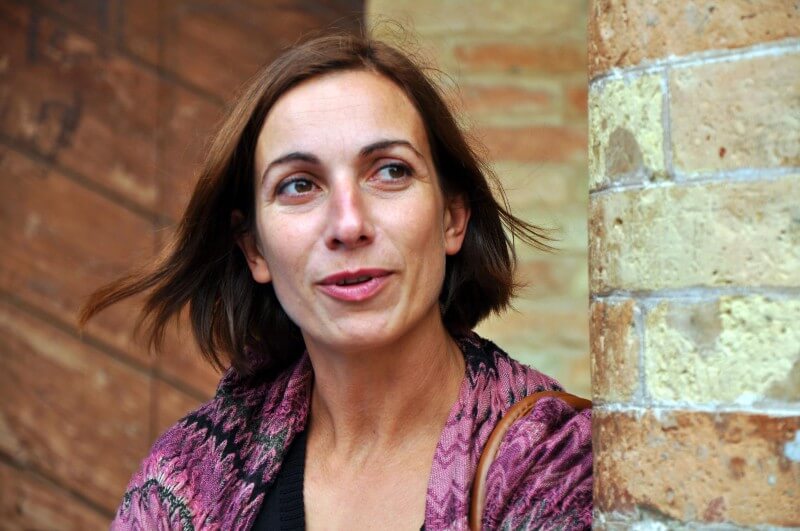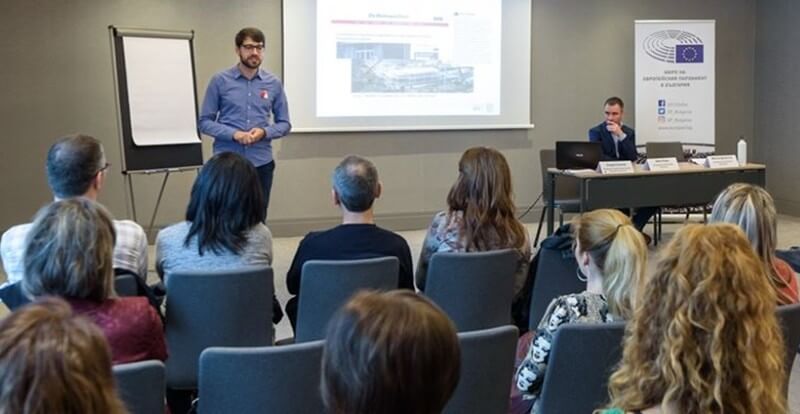 Much like Tolkien’s fictional realm of Mordor, the world of disinformation is a shadowy, evil place. It is a place populated by dark characters: scammers motivated by personal gain, sociopaths bent on wreaking havoc, predators enabled by anonymity, and skillful manipulators eager to shape narratives in their favor.
Much like Tolkien’s fictional realm of Mordor, the world of disinformation is a shadowy, evil place. It is a place populated by dark characters: scammers motivated by personal gain, sociopaths bent on wreaking havoc, predators enabled by anonymity, and skillful manipulators eager to shape narratives in their favor.
“We are facing whole networks of propaganda and disinformation, which work in close coordination and have many resources,” says Kristina Hristova. She heads the Media Literacy Coalition, a sort of Fellowship of Fact that fights the spread of falsehoods in the public space in Bulgaria. The coalition unites organizations and individuals working in media, education, IT, internet security, and civic education. They have long track records in the media and information literacy field, but until recently they had usually acted alone.
“If those of us trying to counteract misinformation continued working on individual projects, separately, we would not have a real impact. The idea is for coalition members to enter into partnerships, interact, and build on each other’s work,” Kristina says.
Although Coalition members began collaborating informally on media literacy initiatives as early as 2017, it wasn’t until 2020 that the Coalition’s work really took off. The timing is no coincidence. The COVID-19 pandemic brought home the acute need for this type of activity.
“Every crisis in society fuels insecurity, which is ideal ground for the spread of conspiracies and misinformation,” Kristina says. “From this perspective, the pandemic exacerbated the damage caused by the lack of media literacy in society, because it was an event of unprecedented proportions, hiding many unknowns still. At the same time, the considerable lack of trust in official information sources and public institutions made Bulgarians easier prey to conspiracies.”
By comparison, societies with high trust in public institutions are more resistant to false information.

It is unfair to lay the entire blame at the pandemic’s door, however. The media environment in Bulgaria has been deteriorating for years. Bulgaria has received dismal ratings in the World Press Freedom Index in the past decade for its persecution and slandering of journalists and pressure on the work of independent media. In 2021, it was 112th out of 180 countries rated in the index. That, coupled with the dominance of social networks, created perfect conditions for the erosion of trust in media.
These developments affected Kristina directly. She is an award-winning journalist and media professional and a cofounder of the Association of European Journalists in Bulgaria, the organization representing independent journalists and news organizations in the country.
“We realized that no matter how hard we try to support quality, ethical, independent journalism, if we do not have the support of society itself, if people do not appreciate the value of this type of journalism, our efforts will remain isolated,” she says. It became clear to Kristina and her colleagues that any effort to support independent media had to be complemented with media literacy programs for society at large.
“My personal cause is education system reform toward developing critical thinking. That includes education not only for children, but for adults as well. If people had more developed media literacy and critical thinking, they would not be such easy prey to political manipulation through ‘captured’ media,” Kristina says.

The Coalition’s guides are a good place to start for anyone interested in guarding against manipulation and surfing the internet safely. Teachers in particular will benefit from the Media Literacy through Distant Learning guide, developed by the Coalition with support from the America for Bulgaria Foundation. The guide offers free lesson plans and tips for integrating media literacy into any school subject.
Moreover, the Coalition regularly publishes reports about the media environment in Bulgaria and best practices in internet use.
Coalition members conduct regular trainings around the country for professionals in an array of fields. Kristina points out that the trainings are designed not to impose specific views, but to develop participants’ critical faculties and appreciation for fact-finding. What is more, the Coalition’s trainers show participants that anyone can make a mistake online; the important thing is to admit it and look for the facts.
Check the Coalition’s calendar to find an event happening near you soon.
Factcheck.bg, developed by Coalition member AEJ – Bulgaria and staffed by professional journalists, investigates questionable claims that have gained wide traction. The team’s findings dispel myths about 5G networks, vaccines, and global warming, among others.
Given the scale of challenges, the Coalition’s efforts may seem small — hobbitlike, if you will — but the members of the Fellowship of Fact are determined and steadfast. And they have truth on their side.

The ring’s destruction in The Lord of the Rings story brought an end to the characters’ woes. In contrast, ending disinformation won’t be a single act. “There is no solution here and now. It will take a lot of effort over time,” Kristina says.
It’s on all of us, in fact. We have to consciously choose, time and again, to drop false facts into the depths of oblivion rather than allowing them to take hold in our minds and wreak havoc in our communities.
It’s up to each of us how this story ends.
For the fifth year in a row, the Media Literacy Coalition is organizing the Media Literacy Days campaign. Its focus in 2022 is the role of teachers, formal and informal instruction, and lifelong learning. The campaign is supported by the Bulgarian Ministries of Culture and of Education and Science, the US Embassy’s Small Grants Program, UNICEF Bulgaria, the Lachezar Tsotsorkov Foundation, and the Europe Program of Sofia Municipality.
The Association of European Journalists in Bulgaria works with the Foundation’s long-term support.

